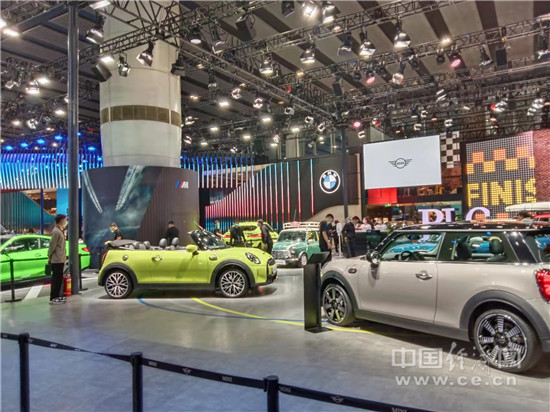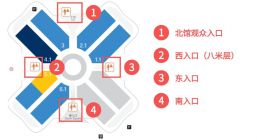Last month, Volkswagen Group Chief Financial Officer Arno Antlitz revealed to the media, "By 2030, the Volkswagen Group will cut 60% of its gasoline models and reduce its overall sales volume in order to focus on producing more profitable premium models. "
Antlitz also emphasized that "Volkswagen's future development goal is not simply to focus on the growth of sales volume and market share, but to focus more on the improvement of products, brand quality and operating profits."
In fact, under the influence of multiple factors such as the epidemic, rising raw material prices, and chip shortages, many traditional auto companies have chosen to allocate resources to more profitable sectors, and give priority to ensuring the supply of high-end products. Statistics show that in the context of the overall decline in the auto market, ultra-luxury car brands including Mercedes-Benz's Maybach, BMW Group's Rolls-Royce and Volkswagen Group's Bentley have achieved contrarian growth.

Profile picture
In the course of more than 100 years of development, no matter how much pressure and challenges the global auto industry encounters, it has always followed the iron law of "economies of scale". Because from the point of view of traditional cost theory, with the expansion of the enterprise scale, the production cost of the enterprise will continue to decrease until a moderate production scale is achieved.
But now, many car companies have not only stopped expanding their scale, but have also drawn up plans to reduce the production of fuel vehicles. Could it be that the "scale-only" business model in the automotive industry is no longer applicable, but needs to be turned to a competition logic where efficiency and profit are the keys to assessment?
While compressing the scale of fuel vehicles, traditional car companies are also actively planning how to develop more electric vehicles. On May 9, Volkswagen CEO Herbert Diess said that by 2025, Volkswagen will become the world's largest seller of electric vehicles.
Also at this time point in 2025, BMW Group plans to deliver 2 million pure electric vehicles worldwide; Mercedes-Benz estimates that electric vehicle sales will account for more than 50%; General Motors plans to produce 1 million electric vehicles; The sales target of electric vehicles is more than 5.5 million units, of which the sales of HEV and PHEV models are about 4.5 million units, and the sales of EV and FCEV are about 1 million units.
For the plan for 2025, several major domestic independent brands not only gave the sales volume of new energy vehicles, but also clarified their internal sales ratio. It is understood that by 2025, Great Wall Motor will achieve global annual sales of 4 million vehicles, of which new energy vehicles will account for 80%; Geely Automobile plans to sell 3.65 million vehicles, of which smart electric vehicles will account for more than 30%; The energy sales target is 1.05 million vehicles, accounting for 35%; according to reports, BYD's internal sales target is 3 million vehicles.
According to the demand principle of economics, under the condition that other conditions remain unchanged, the demand for a commodity and the price change in the opposite direction, that is, the lower the price of the commodity, the greater the demand; the higher the price of the commodity, the greater the demand. Small. And if we show the relationship between quantity demanded and price on a chart, it is a "demand curve" that slopes downward forever.
For the automobile industry, the market demand has basically been fuel vehicles for a long time in the past, which means that there is only a relatively stable "demand curve" on the chart; The overall demand for automobiles is relatively stable, and it only needs to try to expand its market share at a lower price.
Nowadays, in addition to fuel vehicles, the market demand for electric vehicles is increasing, which means that under the condition that the overall demand for vehicles by consumers will not change significantly, fuel vehicles need to gradually give up a certain sales volume to electric car. This is reflected in the graph of the "demand curve", which is reflected in the overall displacement of the curve of fuel vehicles, and an additional "demand curve" for electric vehicles.
Looking forward to the future, whether it is from the perspective of environmental protection and emission reduction, energy security considerations, or the need for industrial upgrading, the automotive industry needs to get rid of its dependence on fossil energy and turn to hydrogen energy, photovoltaic power generation, hydropower, wind power, nuclear power and other other clean energy.
Under this development trend, the automobile industry has planned the product routes and production capacity layout of various power technologies. For the market, it will face the coexistence of multiple constantly changing "demand curves"; for car companies, it is necessary to coordinate the research and development, production and sales of these alternative and complementary products.
In the face of these cross-changing "demand curves", car companies have made completely different strategic plans. At present, OEMs such as Ford are exploring the separation of their electric vehicle business and internal combustion engine business, and Renault is even considering an independent listing of its electric vehicle business; on the contrary, Mercedes-Benz, Volkswagen, Stellantis and other companies have indicated that they will not consider splitting electric vehicles for the time being. Instead, it considers the experience of building internal combustion engines as a quality asset, while using the cash flow generated by the internal combustion engine business to fund its own transformation.
AMS2024 Exhibition Guide | Comprehensive Exhibition Guide, Don't Miss the Exciting Events Online and Offline
Notice on Holding the Rui'an Promotion Conference for the 2025 China (Rui'an) International Automobile and Motorcycle Parts Exhibition
On September 5th, we invite you to join us at the Wenzhou Auto Parts Exhibition on a journey to trace the origin of the Auto Parts City, as per the invitation from the purchaser!
Hot Booking | AAPEX 2024- Professional Exhibition Channel for Entering the North American Auto Parts Market
The wind is just right, Qianchuan Hui! Looking forward to working with you at the 2024 Wenzhou Auto Parts Exhibition and composing a new chapter!
Live up to Shaohua | Wenzhou Auto Parts Exhibition, these wonderful moments are worth remembering!
Free support line!
Email Support!
Working Days/Hours!





